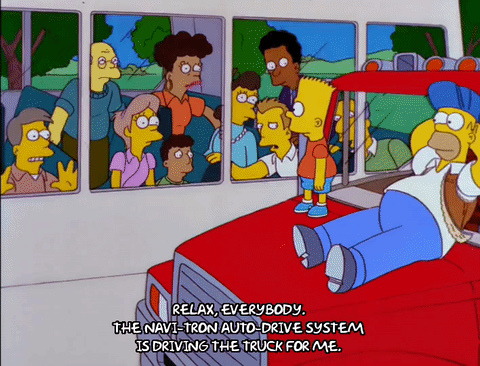WASHINGTON — Federal auto safety regulators on Monday made it official: They are betting the nation’s highways will be safer with more cars driven by machines and not people.
In long-awaited guidelines for the booming industry of automated vehicles, the Obama administration promised strong safety oversight, but sent a clear signal to automakers that the door was wide open for driverless cars.
“We envision in the future, you can take your hands off the wheel, and your commute becomes restful or productive instead of frustrating and exhausting,” said Jeffrey Zients, director of the National Economic Council, adding that highly automated vehicles “will save time, money and lives.”
The statements were the most aggressive signal yet by federal regulators that they see automated car technology as a win for auto safety. Yet having officially endorsed the fast-evolving technology, regulators must now balance the commercial interests of companies including Tesla, Google and Uber with concerns over public safety, especially in light of recent crashes involving semiautonomous cars.
The policies unveiled on Monday were designed to walk that line. In a joint appearance, Mr. Zients and Anthony Foxx, secretary of the United States Department of Transportation, released the first guidelines, which outlined safety expectations and encouraged uniform rules for the nascent technology. The instructions signaled to motorists that automated vehicles would not be a wild west where companies can try anything without oversight, but were also vague enough that automakers and technology companies would not fear over-regulation.
Driverless and semiautonomous cars have already hit the open roads, forcing regulators to keep up. Tesla, the electric-car maker, has sold tens of thousands of cars with a self-driving feature known as Autopilot. The company has been grappling with the fallout from the death in May of a Florida driver who had the car’s Autopilot on, as well as a report last week of another crash in China where the technology apparently was turned on.
Despite their multitude of sensors and processors, autonomous cars have a lot of trouble with some everyday aspects of driving.
Tesla plans as soon as this week to download new software to its cars. The company’s chief executive, Elon Musk, has said the new software will include improvements to Autopilot that could have avoided the fatal accident in May.
Uber, the ride-hailing giant, began trials in Pittsburgh last week to let its most loyal customers order rides from driverless cars through their smartphone app. Google has been testing self-driving cars in its hometown Mountain View, Calif., and rivals including Apple are also exploring similar technology.
Last year, there were nearly 40,000 deaths in the United States from auto-related accidents, the deadliest for automotive-related deaths since 2008 and the largest year-over-year percentage increase in 50 years, according to the National Safety Council.
Karl Brauer, senior editor at Kelley Blue Book, an auto research and valuation company, said the new guidelines strike a balance between ensuring safety as automakers develop self-driving cars and making sure the introduction of lifesaving technology is not delayed unnecessarily.
“We are in this weird transition,” Mr. Brauer said. “It’s a tough balance for the regulators. You want to get this technology out, but you don’t want to move too quickly.”
The new guidelines on Monday targeted four main areas. The Department of Transportation announced a 15-point safety guideline for the design and development of autonomous vehicles; called for states to come up with uniform policies applying to driverless cars; clarified how current regulations can be applied to driverless cars; and opened the door for new regulations on the technology.
Currently, driverless cars face a patchwork of state regulations. In the last three years, about a dozen states have passed laws that specifically address testing of driverless vehicles. Most laws require a licensed driver to be in the car.
Mr. Foxx said states would continue to regulate the licensing of drivers and insurance. But Mr. Foxx affirmed the agency’s oversight over the software technology used in driverless cars.
“What we are trying to do is avoid a patchwork of state laws,” Mr. Foxx said.
The federal guidelines were welcomed by auto manufacturers. Ford, which is targeting fully autonomous vehicles by 2021 for ride-sharing, said in a statement that the guidance “will help establish the basis for a national framework that enables the safe deployment of autonomous vehicles. We also look forward to collaborating with states on areas that complement this national framework.”
“State and local governments also have complementary responsibilities and should work with the federal government to achieve and maintain our status as world leaders in innovation,” said David Strickland, general counsel for the trade group, Self-Driving Coalition for Safer Streets.
The government’s endorsement will speed up the rollout of autonomous cars, experts said, potentially within the next five years.
“It helps companies by providing some cover. If a car crashes, courts may look to these guidelines to help us determine what was reasonable and not,” said Bryant Walker Smith, a professor at the University of South Carolina.
Large automakers in particular have made big strides in the technological development of driverless cars but have been wary of introducing those features too quickly without the backing of federal regulators.
“Big companies love certainty and targets that they need to aim for,” said Brad Templeton, a consultant and publisher of Robocars.com.
http://www.nytimes.com/2016/09/20/t...eakingNews&contentID=64336911&pgtype=Homepage
itshappening.gif



